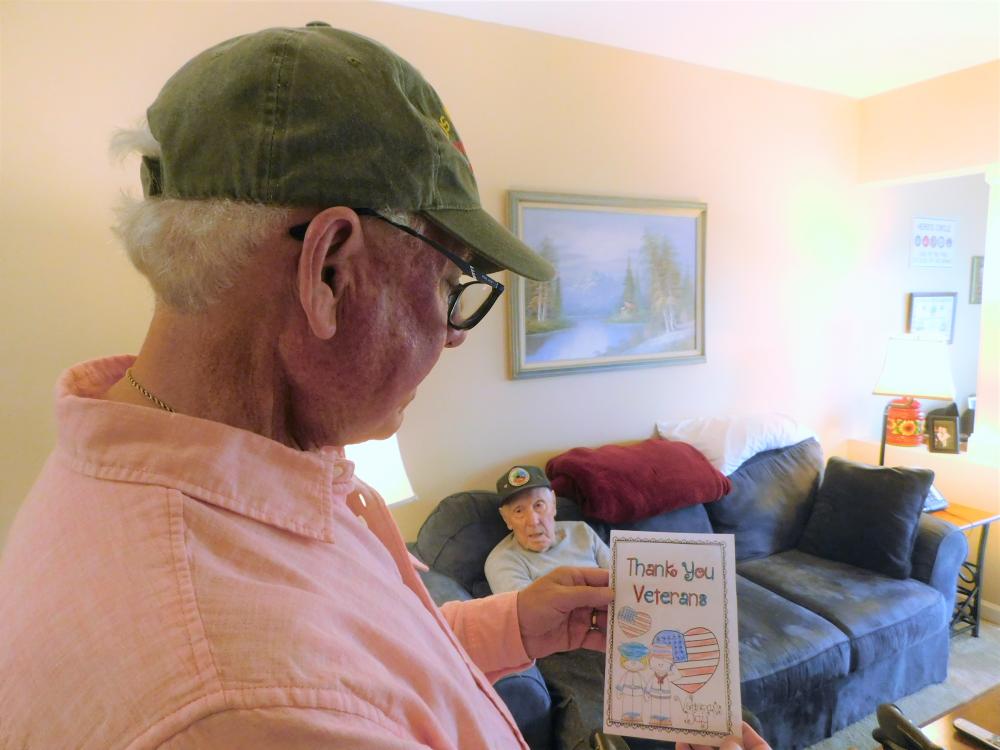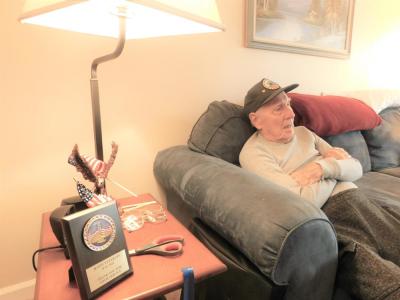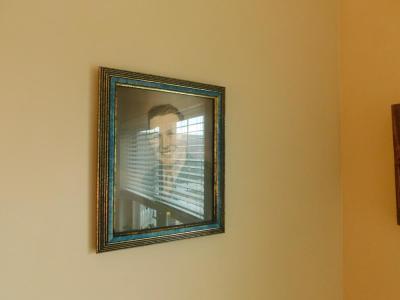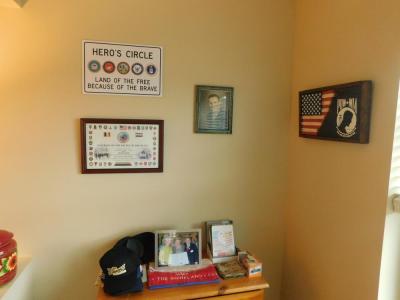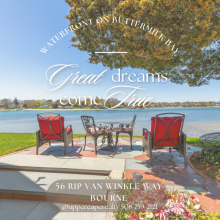Father, son reflect on changed meaning of Veterans Day
Over the years, the meaning of Veterans Day has changed a lot for Rick Holmes. In 1971, Rick joined the Navy “instead of waiting to be drafted,” but that wasn’t the only reason he enlisted. He was inspired by his father Brad Holmes, a World War II veteran and prisoner of war.
Veterans Day “means more to me than it did for many years,” Rick said. “Coming back from Vietnam, Vietnam veterans were disrespected, yelled at. So you just kind of didn’t deal with it. Now that I’m older, I appreciate it more.”
Rick watched his 97-year-old father be honored during a special Veterans Day ceremony at Keystone Place at Buzzards Bay on Friday, Nov. 11. Brad and other veterans who live at the retirement community were given gift baskets sponsored by Beacon Hospice Care in Plymouth. The baskets contained a plaque, an American flag and a card from schoolchildren.
“I was thankful that they gave us something to remember us by,” Brad said. “It means a lot.”
“You gotta take advantage of these opportunities when they come,” Rick said. “God knows how many more opportunities there will be. Someday, it’ll be me.”
A “God Bless America” decoration hangs on the front door to Brad’s room. Mementos of his service are everywhere, most prominently a sepia-toned photograph of him in his younger years, around the time that the draft took 18-year-old Brad from the cranberry bogs to the front lines in Europe with the 423rd Regiment. As Brad has gotten older, Rick plays more and more of a role in telling his father’s story.
“He’s had his nine lives, that’s for sure,” Rick said. “You can count on your fingers how many times he could have been killed. But he survived it all, and here he is.”
It was during the Battle of the Bulge that Brad was captured and taken to the Stalag IV-B prisoner of war camp.
“It was so overcrowded and filthy that when they were looking for people to volunteer for work detail, he figured it had to be better than where he was at,” Rick said. “And he raised his hand.”
SS guards stood watch as Brad and other prisoners cut down trees and dragged them through the snow.
“We were out there all day long working,” Brad said. “When I got there, they just gave you a burlap bag to stuff with hay to use as a mattress. You got very little to eat and it was always soup of some sort.”
Liberation came quickly to Brad and his fellow prisoners. They woke up one morning to find that the guards had disappeared, fleeing from encroaching Soviet forces. Brad followed a mass exodus of prisoners walking the same road, thinking that at least one of them had to know where they were headed.
“I ended up in Czechoslovakia,” Brad recalled. “I met a nice young girl when I was walking through a small town. The roads were all dirt. I came to a little house with a little porch. I stopped and sat down. This young girl came out and it just so happened that she spoke English.”
The girl invited him to dinner that night. Her house was near a Soviet prison camp.
“They knew the war was coming to an end,” Brad said, “so they were runnin’ around shootin’ their guns off.”
Eventually, Brad found salvation in the form of an approaching Jeep, and returned to Onset to start a family. Many years later, when Rick’s daughter was in ninth grade, she interviewed her grandfather for a school project. On her cassette tape, she captured details of Brad’s story that not even Rick knew.
“We didn’t know anything,” Rick said. “World War II veterans didn’t say much when they came back.”
In the Navy, Rick worked as a constructional electrician with the Seabees in Thailand.
“We weren't supposed to be there, let’s put it that way,” he said. “It was confidential. At the time anyway.”
Rick learned discipline and hard work from the experience.
“Now that I’m a veteran and went through it too,” he said, “I kind of understand. I went through nothing like he did, but you still go through that phase of your life as a young man. Makes you grow up quick. I wish more young people would go through it. It would change their outlook on a lot of things.”



